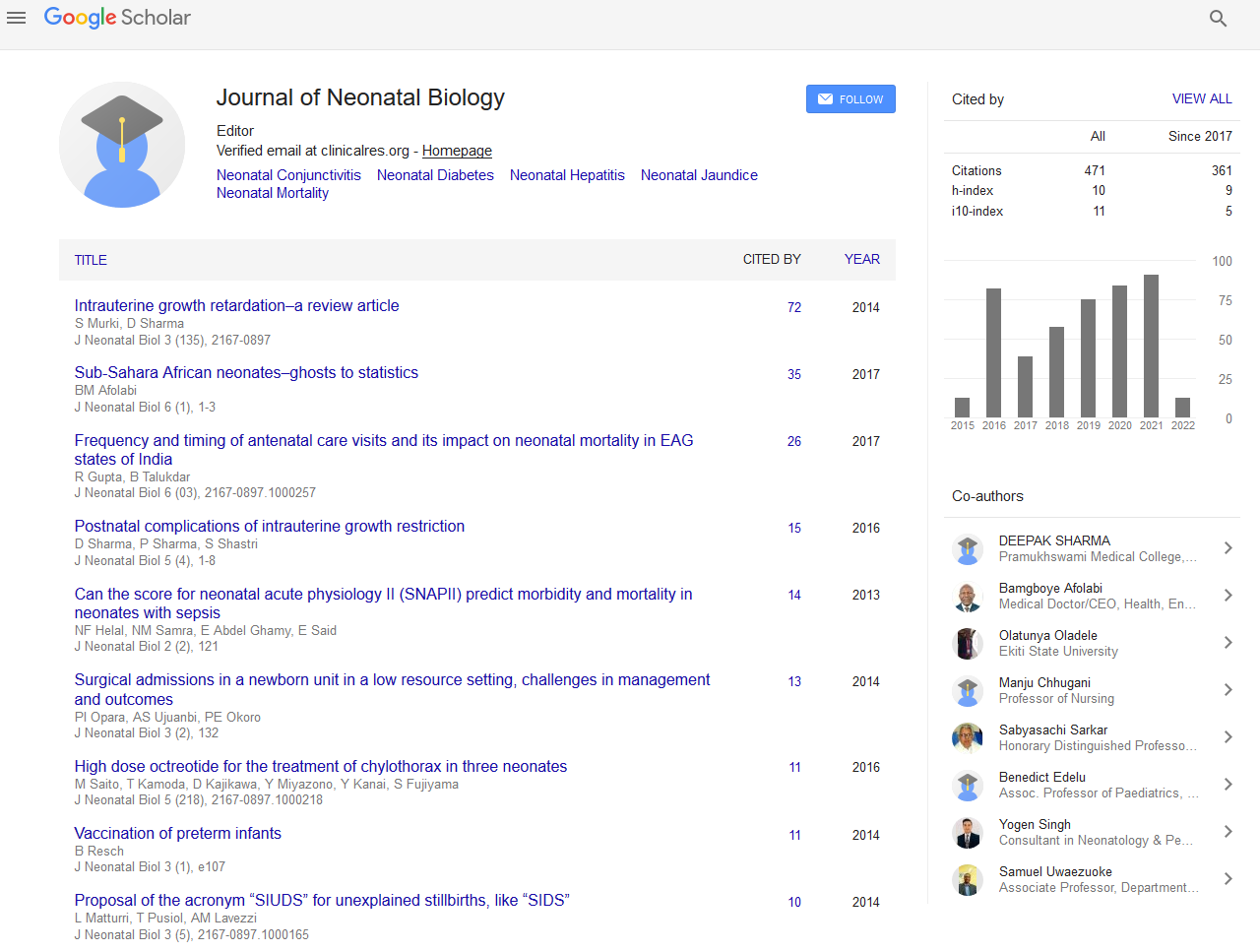PMC/PubMed Indexed Articles
Indexed In
- Genamics JournalSeek
- RefSeek
- Hamdard University
- EBSCO A-Z
- OCLC- WorldCat
- Publons
- Geneva Foundation for Medical Education and Research
- Euro Pub
- Google Scholar
Useful Links
Share This Page
Journal Flyer

Open Access Journals
- Agri and Aquaculture
- Biochemistry
- Bioinformatics & Systems Biology
- Business & Management
- Chemistry
- Clinical Sciences
- Engineering
- Food & Nutrition
- General Science
- Genetics & Molecular Biology
- Immunology & Microbiology
- Medical Sciences
- Neuroscience & Psychology
- Nursing & Health Care
- Pharmaceutical Sciences
Prevention of Total Parenteral Nutrition (TPN) cholestasis in neonates
9th International Conference on Neonatology and Pediatric Neurology
November 28-30, 2016 Valencia, Spain
Rathna P Amarnath
University of South Carolina School of Medicine, USA
Keynote: J Neonatal Biol
Abstract:
Premature infants receiving TPN for more than 2 weeks are at risk to develop cholestasis especially if the infant also has intestinal failure. It is defined as elevation of direct bilirubin greater than 2 mg/DL (>32 mmol/liter) in the absence of any other cause for cholestasis. It can occur in 14% to 85% of the infants depending upon the duration of TPN. It can lead to cirrhosis and liver failure. Because of it, this condition is also known as intestinal failure associated liver disease (IFALD). It has significant morbidity and prolongs NICU stay, costing billions of health care dollars. Cause for this condition is probably multifactorial. Current research suggests intestinal failure and the TPN components especially the lipids are major contributing factors. The soy based omega 6 fatty acid preparation is implicated in many studies. Hence modification of lipid components and aggressive management of intestinal failure can prevent IFALD. Multiple studies, including our own research has shown omega 3 short chain fatty acids and reducing the lipid derived calories to 25% of daily requirements along with aggressive intestinal rehabilitation can improve as well as prevent this condition.
Biography :
Rathna P Amarnath, MD, has completed his Medical education in India, Pediatric Residency and Fellowship in Pediatric Gastroenterology in United States of America. He is the Director of division Pediatric Gastroenterology and Nutrition at University of South Carolina School of Medicine and has published or presented more than 40 articles and abstracts in reputed journals and international meetings.


